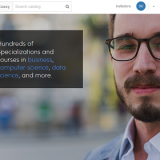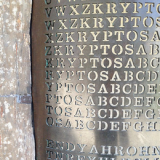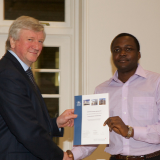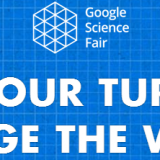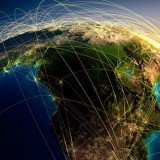Long-Term Thinking For a Short-Sighted World (2012) Book Summary and Insights
Book Title: Long-Term Thinking for a Short-Sighted World
Subtitle: Restoring Happiness, Balance, and Sanity to Our Lives and Our Planet
Publication Date: 2012
Author Name: Jim Brumm
Book Summary
Jim Brumm uses this book as a call-to-order for us, asking us to fix our myopic thinking in terms of the Earth. The book tells readers that our short-sightedness comes from the urge to make snap decisions and live life under the reign of the clock.
The book urges us to extend our perspectives beyond immediate, personal gratification, and make our decisions with long-term thoughts on our mind.
Who is This Book For?
This book is for anyone curious about the state of our environment, what to do about it, and how to reduce pollution. It is for environment enthusiasts.
About The Author
Jim Brumm is a writer, editor and author living in Santa Rosa, California. He has worked as an editor for over four years and is a publisher of several magazines which he founded. He is an award-winning song-writer working as a freelance writer.
Visit http://www.jimbrumm.com to learn more about him.
Long-Term Thinking for a Short-Sighted World is his first novel.
Buy Book: Support The Book Author And Our Work
Great books should be read, studied and reviewed, so reading the actual book may provide more value to you than the book insights on this page. This will also support the work of the book author and what we do on LarnEdu.
Important Notes
We get a small compensation from Amazon when you visit your nearest/local Amazon site via our affiliate link to purchase an item within 24 hours or if you add it to your cart and checkout within 90 days. This is no additional cost to you and supports our work.
The information on this page is meant to supplement the actual book(it is not a book review but distils the key insights or ideas from the book in under 5000 words). The content creator or LarnEdu does not necessarily support the views, thoughts, and opinions expressed in the text/book. Reasonable skepticism should be applied with any views, thoughts or opinions expressed/shared by the book author or content creator.
Reading the contents of this page does not guarantee specific results. The best lessons are achieved from taking consistent action in the real world rather than being addicted to the illusion of progress by getting stuck on reading an infinite amount of books or book summaries and insights. LarnEdu and the content creator accepts no responsibility or liability for the accuracy of the information on this page or how it is used.
Book Insights

Introduction
Brumm explains the impact that our short-term thinking has had on our planet. He explains the shocking difference between 1 million and 1 billion and comes back around to show us how living in-the-moment does more harm than good.
Human Perception of Time
Our misunderstanding of time is perhaps our greatest challenge and cause of our ultimate doom.
Our short-sightedness goes back to the time when man needed to focus on one thing at a time to survive, and when the goal was universal; food, warmth, safety, shelter and multiplying. Then, achieving these things were simpler and required fewer innovations.
Fast forward to present day, where man has invented agriculture, advanced in technology and created ways to make life easier. Agriculture is fundamental to man’s survival but, when we settle at a place and toil the grounds, we cause more destruction.
Easter Island suffered because of man’s unending need and subsequent cutting down of trees for wood, logs and statues. Our acts affected the Asian island of Borneo similarly, because of human carelessness. When WHO sprayed the area with pesticide, they succeeded in not just destroying the mosquitoes plaguing the place; they caused a chain reaction where geckos, cats, rats and even people got affected.
Considering we run our daily lives according to the clock; wake up, shower, eat, go to work, all at a scheduled time, it should be easier for us to notice that our actions have more consequences than meets the eye. This boils down to our inability to process lengthy periods of time, stretching past 1 million. The Earth is over 4.5 billion years old, and the average man’s mind cannot process what that number means.
A study estimated the average American teenager to receive one message every 20 minutes in 2008, resulting in 2,272 text messages in a month.
Cars are One of Our Most Myopic Inventions
Man is by nature programmed to think in short-term intervals; making plans and decisions surrounding the next 5-30 minutes. Our propensity to work towards and seek immediate results is highlighted in the 7-day workout plans we follow, and we get disappointed when we don’t see the quick results we are looking for. This short-term thinking causes us to make some of our worst decisions; which include killing our trees for logs, building material and firewood and, building cars.
We proclaim cars as one of man’s greatest inventions, with its many benefits and strides crossed in technology. The innovation came about 120 years ago, touting the freedom to reach previously unconsidered destinations, and the luxury of convenience.
However, the long-term consequences of cars out-weigh the benefits. Among these consequences is the devastating impact on our environment. Today, car manufacturers try to meet up with the newly implemented CO2 regulations, and we have just one company making electric cars to reduce air pollution. Pollution aside, oil produced to fuel these vehicles is dangerous and harmful to us. Think of the motor accidents that have claimed lives all over the world; the casualties are more than those from all the wars combined.
Factoring in that we are more liable to act out in violence when isolated in cars, evident in road rages- leads us to the decision that cars might be one of the less smart inventions we ever made.
Destructive “Pay Later” Mentality
Finances, debts and the need to import goods is another contributor to our short-sightedness. Local stores do more good for us than chain stores and superstores, because they cancel out the need for us to drive our vehicles to the nearest supermarkets, contributing more to pollution.
Local businesses are better off in terms of long-term thinking because they often start these stores as a family business, built on trust, familiarity and an eye towards longevity. Also, these stores often source their goods locally, reducing the need for long distance shipping costs and hazards.
The bigger chain stores like Wal-Mart might offer more in terms of variety but this variety might very much be what is getting you into debt in the first place. Credit cards are another prime example of how we are quick to embrace short-term ideas and thinking. Basically, you say to yourself, “I can pick this up now, but I’ll pay for it later”.
In the year 2010, over 609 million credit cards in the United States were being used. Because of all the debt being incurred, the US is in a debt crisis, with the national debt at $3.4 trillion in 2016.
Moving away from the short-term fulfilment that unnecessary items provide is the first step towards fixing the debt and credit card problem.
We can gravitate more surely towards embracing small and local farming. We have misplaced the satisfaction that comes from knowing and appreciating where our foods come from. McDonalds sell 75 burgers every second around the world and, this need to satisfy our hunger has a greater long-term impact on our lives than we care to think about. Fast, cheap and consistent are the words that drive these corporations but, how healthy are these products to our systems and environment?
We need to revisit small farming once more, as it is a system that reduces the effects of excessive manure and river pollution.
Why We Need To Explore Solar Energy
Coal, natural gas and oil remain our number one source of energy production, although these resources are dwindling.
The first thing we can do to fix this is research on new methods of energy sources. Given the rate of our current consumption, experts have predicted us to run out in about 40 years. Long-term thinking allows us to realise that we must explore new sources, and short-term thinking encourages us to source for the depleting oil in dangerous, environmentally harmful ways and fight wars.
Solar energy is an option just waiting to be fully explored. Why don’t we generate our energy from the ball of sun; unending, clean source of energy it is?
We Must Respect Nature’s Cycle
We are as part of nature as the trees, the earth and the animals. The first thing we must realise is that nature is about cycles – the cycle of life, the cycle of seasons, the cycle of day and night.
What does this mean? It means that we cannot take what nature has to offer without giving something back. It means that for our planet to keep being habitable, and for Earth to keep on giving us, we must not take more than we can produce back. It is a cycle of give and take, both on equal levels.
The next step is to do something about what you have learned – be proactive. Although most stories and researchers paint grim, pictures of Earth’s ultimate doom, we cannot lose all hope. We must band together to protect our Earth. Its prosperity and our subsequent prosperity rely on the choices we make every day.
You might think you are old and would be dead before the prophecies made about the Earth comes to pass but, what about the next generation? We must leave them a healthy Earth, even better than the one we met.
Key Quotes
As a result of our short-sightedness, we are overfeeding the present by stealing from the future.
In today’s world we are grappling at every turn with an increasing energy shortage, food production systems that struggle to feed increasing millions, environmental problems that threaten our survival, a debt crisis that is crippling individuals and governments, and so much more. All of these problems come with their own unique challenges and examined on their own they may seem completely different from each other, but they share one common, rarely discussed hidden thread that runs through the center of each and binds them together: a lack of long-term thinking. We’re very bad long-term thinkers.
Conclusion
Our short-sightedness goes back to our simpler ways of life centuries ago, where our primary focus was rarely more than food, warmth, safety.
But now, with evolution and diverse opportunities, we must banish those myopic thoughts and make our everyday choices with our long-term future in mind. Start with a tiny step; plant your own vegetable path, bring your own coffee cup to the coffee shop. You would reduce the number of paper cups Americans use per year.
Since You’re Here…
Great books should be read, studied and reviewed, so reading the actual book may provide more value to you than the book insights on this page. This will also support the work of the book author and what we do on LarnEdu.
Furthermore, you can support LarnEdu by making a one-off or monthly donation (via PayPal) for as little as £0.99 or by sharing this content.
Got any feedback or suggestions? Use the comment section below or send us a message.
Content created by: Tracy





